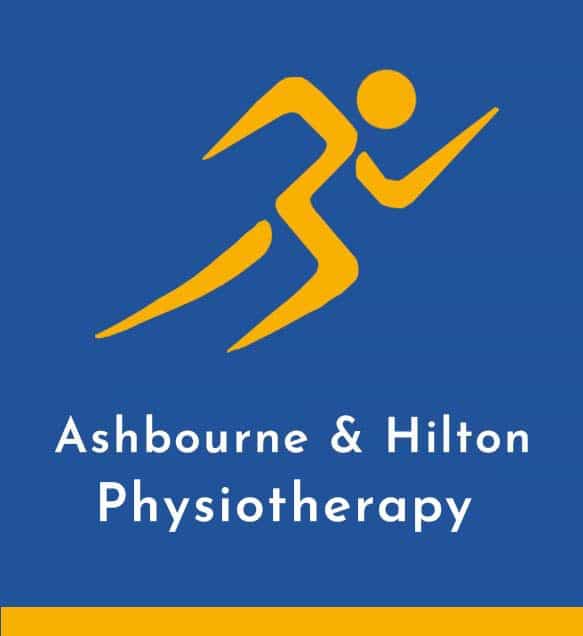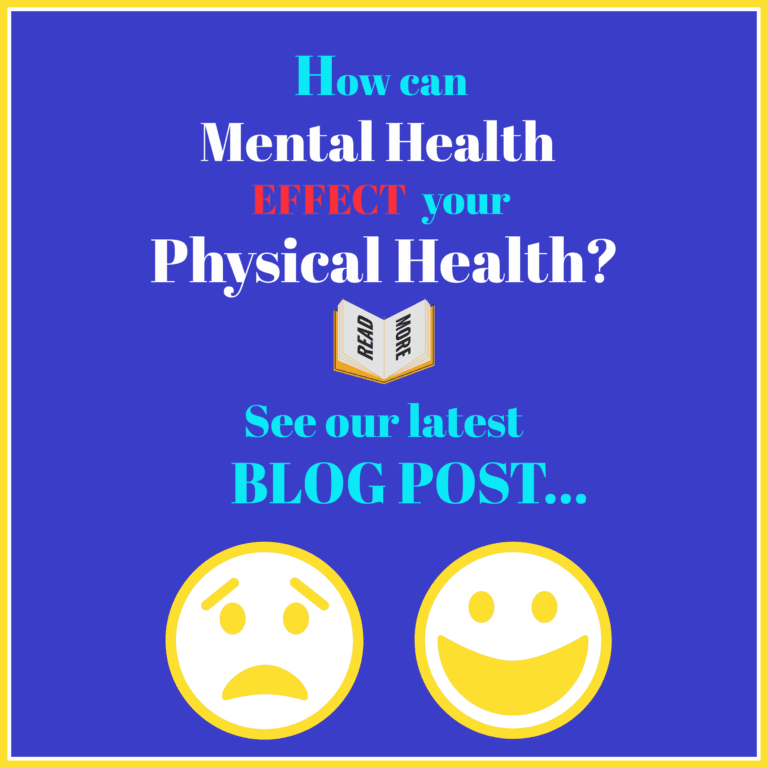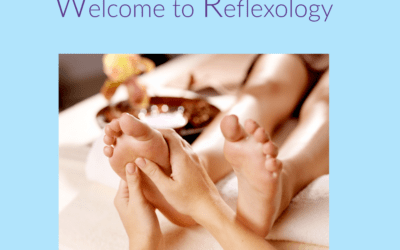We post this Blog as we reflect on Mental Health Awareness Week. This is an important topic to cover as this can greatly impact our physical wellbeing and vice versa.
There are a variety of therapies that can help you and of course, here at Ashbourne and Hilton Physiotherapy Centres we are here to offer help and treat your physical needs often with some simple strategies to aid mental health along the way.
The Mind & Body Connection
The mind and body connection is an extremely powerful relationship. Each mental state such as anger, anxiety, worry, happiness or sadness triggers stress hormones. This can result in pain in the body, as the pain acts as a survival signal for the brain to prepare for flight or fight. Activation of the complex brain neurons result in a tight, tense, often painful areas of the body, which in turn often need assistance and the right environment to calm and recover.
Stress affects the body in lots of ways as is shown below –
Image credit: www.fit4life.com
Stress that continues over long periods of time can actually sensitise our nervous system so that we become more susceptible to feeling pain and pain becomes more easily triggered with gradually less provocation. In simple terms this is what is called chronic pain or persistent pain. There are lots of factors that can accentuate chronic or persistent pain and mental health is one of them.
3 examples of things that can really help balance our mood and reduce stress are:
- exercise
- connecting with nature
- social interaction
The Benefits of Exercise!
Now as a physiotherapy clinic we are always harping on about the benefits of exercise (which are numerous and include improvements to our mental health). Imagine if you could augment the mental health benefits of exercise by adding in more connection with nature and with social interaction………….
The really important thing about exercise is doing something regularly and doing something that you enjoy – you are much more likely to stick with it if it gives you a buzz. Ideally this would be outside in the fresh air experiencing nature around you. More than half of all adults say that being close to nature improves their mental health and that they experience positive emotions from being in nature. The extra bonus is that it is often freely available – certainly where our clinics are in Hilton and Ashbourne on the edge of the Peak District we are lucky to be surrounded by beautiful countryside. It’s not just about being outside, it’s about looking around you, experiencing the colours, sounds and smells of the countryside (yes, even the farmyard smells!).
When did you last get out into nature and how did it make you feel? If it’s been a while why not put some time aside this coming week and give it a go – see how it makes you feel. There are some great ideas from the mental health foundation on this link
Our top tips on connecting with nature to improve your mental health | Mental Health Foundation
There is really simple mindfulness/meditation activity that can be useful especially when around nature – switch your phone off and sit quietly for a couple of minutes. Focus your attention on:
5 things you can see
4 things you can hear
3 things you can touch
2 things you can smell
1 thing you can taste
Of course you can change the order of these depending on the situation you find yourself in. It is so simple, easy to remember and really helps you make that connection to your surroundings.
The other factor to add into your exercise if it is possible, is some social interaction. It has been an extraordinary year as far as our social interactions go and many, many people are feeling unsure about how to reintroduce this into their lives – be assured you are not on your own………………
Having an exercise buddy or group is motivating and fun and has the added benefit of giving opportunities to talk if you want to which can be hugely beneficial for mutual mental health support.
As from the 17th May, we are please to confirm that Tai Chi and Pilates classes will be recommencing. Please call us for more information for classes and times.
Phone numbers & useful links
Here are also some useful links that may be of help:-
https://www.nhs.uk/conditions/stress-anxiety-depression/free-therapy-or-counselling/
https://www.nhs.uk/service-search/mental-health/find-an-urgent-mental-health-helpline




